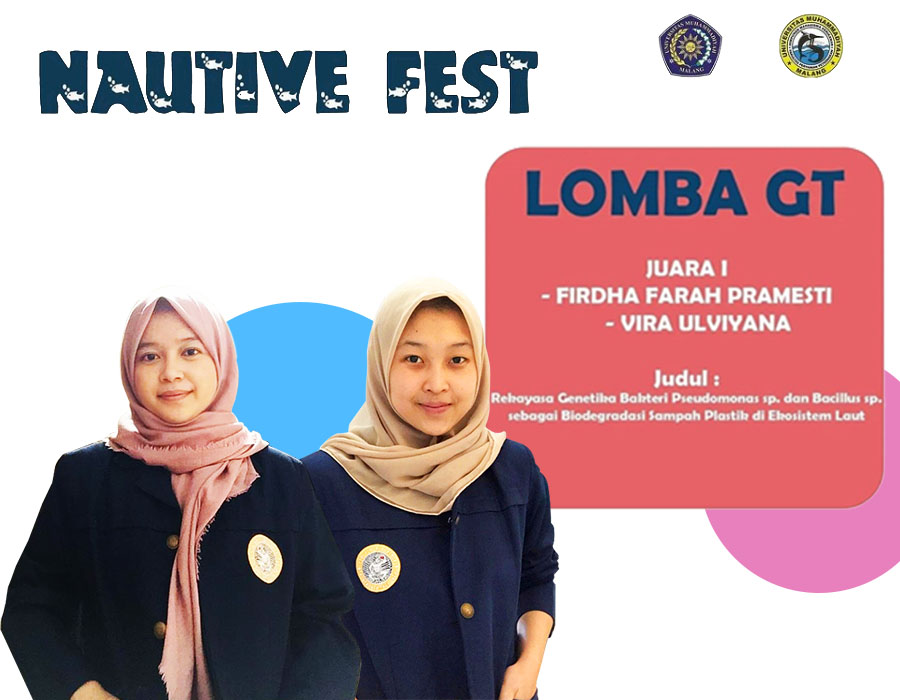UNAIR NEWS- Two aquaculture students from the Faculty of Fisheries and Marine Sciences, Universitas Airlangga (UNAIR), Firdha Farah Pramesti and Vira Ulfiyana, from the class of 2017, initiated a solution to reduce the level of plastic waste in the sea using Pseudomonas sp. And Bacillus sp. Their idea was presented in the Nautive Fest 2021 national competition held by the Faculty of Fisheries and Marine Sciences, Universitas Muhammadiyah Malang (UMM). It was titled “Genetic Engineering of Pseudomonas sp. And Bacillus sp. as Biodegradation of Plastic Waste in Marine Ecosystems” and won first place.
One of the global problems currently damaging the ecological order of marine ecosystems is plastic pollution. According to Firdha Farah, as the team leader, plastic waste in Indonesia is high, with an average production of 175.000 tons per day, equivalent to 64 million tons per year.
Based on this problem, the team began to look for the development of an effective and environmentally friendly plastic waste management by utilizing Bacillus sp. and Pseudomonas sp. as a combination of plastic waste-degrading bacteria. According to her, bacterial degradation is one of the main strategies used for the bioremediation of organic compounds.
Reporting from the LIPI (Indonesia Institute of Sciences) page, Firdha explained that the two bacteria would be “mated” (conjugation process, ed) where there is a transfer of genetic material (DNA) from the donor bacteria to the recipient bacteria. “By combining these two different organisms, superior traits are expected,” said Firdha.
According to Riandi et al. (2017), Pseudomonas sp. has the ability to degrade a low-density polyethylene (LDPE) plastic by 18.75%, while Bacillus sp. has a protease enzyme that could biodegrades of polyethylene plastic materials. Firdha said that the two bacteria are still safe for marine life even if exposed to them.
“InshaAllah, it is safe, but the result of combining this genetic material of the two bacteria has not been tested yet because it is still an idea,” explained Firdha on Thursday, August 12, 2021.
Then, what are the characteristics of the two bacteria? Firdha explained that Bacillus sp. is a good bacteria that is commonly used for making probiotics, while Pseudomonas sp. are able to produce bacteriocin and antibiotic compounds that inhibit and suppress pathogenic bacteria.
Firdha continued, Pseudomonas sp. is able to produce several enzymes, such as proteases, amylase, and cellulases that can break down proteins, carbohydrates, and fats into simpler compounds. Pseudomonas sp. bacteria then have the potential to be candidates for probiotic bacteria.
Firdha, who once served as Secretary of the Student Executive Board (BEM) FPK UNAIR, provided a tip for writing scientific papers, to always follow the latest developments. “For me, I try to attend webinars; from there, I will find the problem and the ideas as well as solutions to overcome it,” concluded Firdha. (*)
Author: Dimar Herfano
Editor: Feri Fenoria (AC/AP)





